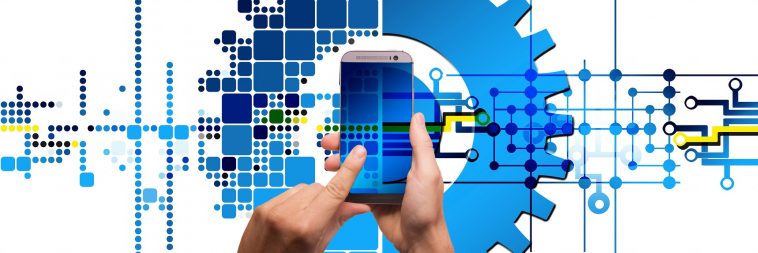Rwanda moved quickly to improve the business sector, make services available to everyone, and improve vulnerable groups’ lives by focusing on building capacity, changing the culture, and giving the tech community digital and management skills.
To realize this objective, on November 3rd, 2015, the Smart Rwanda Master Plan (SRMP) was given the go-ahead to establish a knowledge-based economy that emphasizes digital transformation in seven key sectors. These sectors are governance, education, health, finance, gender, youth mainstreaming trade and industry, and agriculture.
The plan depended on three key enablers: ICT governance and management, developing digital talent, and providing broadband for everyone by sharing ICT infrastructure.
ICT in Telecom
Over the years, the price of voice and data services and accessibility devices like feature phones and smartphones has decreased steadily. Technology has improved, and there is healthy competition among technology vendors, telecom operators, and service providers.
The price decrease has directly impacted the rise in the number of people in the country who have access to mobile phones and the Internet. Penetration of the Internet, 2011–2018 Internet and communications technology mobile phone plans.
4G coverage
Other significant broadband access initiatives started in 2018, such as free Wi-Fi deployment in buses and public places, while 3G and 3.5G services persisted at 93.37% of population coverage.
This rollout of 4G LTE to all districts coincided with the rollout of 3G and 3.5G services. With the focus on rolling out 4G LTE, 3G and 3.5G services have been passed by 4G LTE services. Nearly 4 million people signed up for the Internet by the end of 2018, up from 3.7 million at the end of 2017.
In 2018, the number of mobile-cellular subscriptions grew by 10%, from 8,819,217 to 9,665,544. However, the growth rate is slowing, suggesting that the market may be reaching its saturation point.
Also, 96.6% of Rwanda’s population is covered by 4G, which shows how widespread it is. 47.7% of the people have access to the Internet, and 82.6% of them have a mobile cellular phone plan. From 2017, when there were 9,912,735 users, there are now 1,1067,077 subscribers to mobile money.
ICT in E-FINANCIAL TRANSACTIONS
As Rwanda moves toward a cashless economy, the government continues to promote the expansion of the finance sector while enhancing financial inclusion for all Rwandans.
This may be seen in the expanded use of ICT in financial service delivery, the rising number of mobile payment subscriptions and electronic transactions, the increased deployment of electronic billing/transaction machines, the increased use of online tax payments, and so on.
There are many benefits to actively using ICT in the finance sector, such as improved effectiveness and efficiency in both transaction and business processes, more transparency, opportunities for new and existing businesses, financing opportunities, etc.
However, more creative ICT tools/services must be developed and adopted for people to achieve far more significant financial inclusion and, as a result, improve their socio-economic well-being. Many tools make it easier to pay online, such as the Rwanda Integrated Payment System, the Shared Agency Banking System, and others (e.g., Fintech solutions.
Rwanda Payment System Strategy, Regulatory Sandbox for innovative, Financial Literacy strategy, etc.).
In the meantime, developments in the financial industry are improving the population’s standard of living. A Rwandan mobile financial service called “Save” by Exuus is an example of this innovation. Save is a mobile group saving/lending platform that lets its users save and borrow money at low-interest rates. Users can access much-needed loans without going through stricter financial lending procedures.
The number of transactions processed by POS and ATMs
In 2018, there were 883,755 debit cards issued in Rwanda, which is an 18% increase over the previous year’s figure of 746,458. During the same period, POS transactions went from 660,746 to 1,588,639. The value of these transactions went from FRW 41.5 billion to FRW 85,434 billion, which is a 106% increase. This happened because banks and local phone companies worked together very well.
In the last three years, the financial sector has greatly impacted financial inclusion by working together to roll out products that take advantage of the popularity of electronic transaction platforms. As a result, the “Cashless Economy” has become a reality.
ICT in Governmental TRANSACTIONS
Rwanda wants to become the leading ICT Hub in Africa by creating an environment for innovation with competitive start-ups that provide high-quality and high-value ICT products and services for the continent and the world markets. Rwanda wants to become the leading ICT Hub in Africa by creating an environment for innovation with competitive start-ups that provide high-quality and high-value ICT products and services for the continent and the international markets.
A robust innovation ecosystem is made up of many parts, such as a lot of money spent on research and development, the creation of the right financing mechanisms, the implementation of supportive policies and rules, the identification of a niche but the targeted market environment, and the creation of ICT and infrastructure that encourages innovation.
Examples of the innovative solutions
Trade and Industry
Rwanda trade portal Company issue tracker
National Monitoring Committee for NTBS
Transport
Tap & Go
Innovision Ltd (Yegomotos and Yegocabs)
– Governance
RwandaOn-Line
– E-Procurement System
Irembo
Rwanda Electronic Cargo Tracking System
– Agriculture
E-soko
Precision agriculture
Smart nkunganire
Smart irrigation
– Health
Babyl: Rwanda’s largest provider of digital health services
Zipline; Drone delivery system for critical pharmaceuticals like blood and vaccines
– E-commerce
Rwandair REGS LTD Kasha jumia
Ihaha Technologies
Yubeyi.com
Homeness Rwanda
Hehe Limited
Ihaha Technologies
Different Hotels and transport companies
JUSTICE
IECMS; A computerized judicial case processing system for the whole judicial chain to make service to the public easier, faster, and more affordable.



